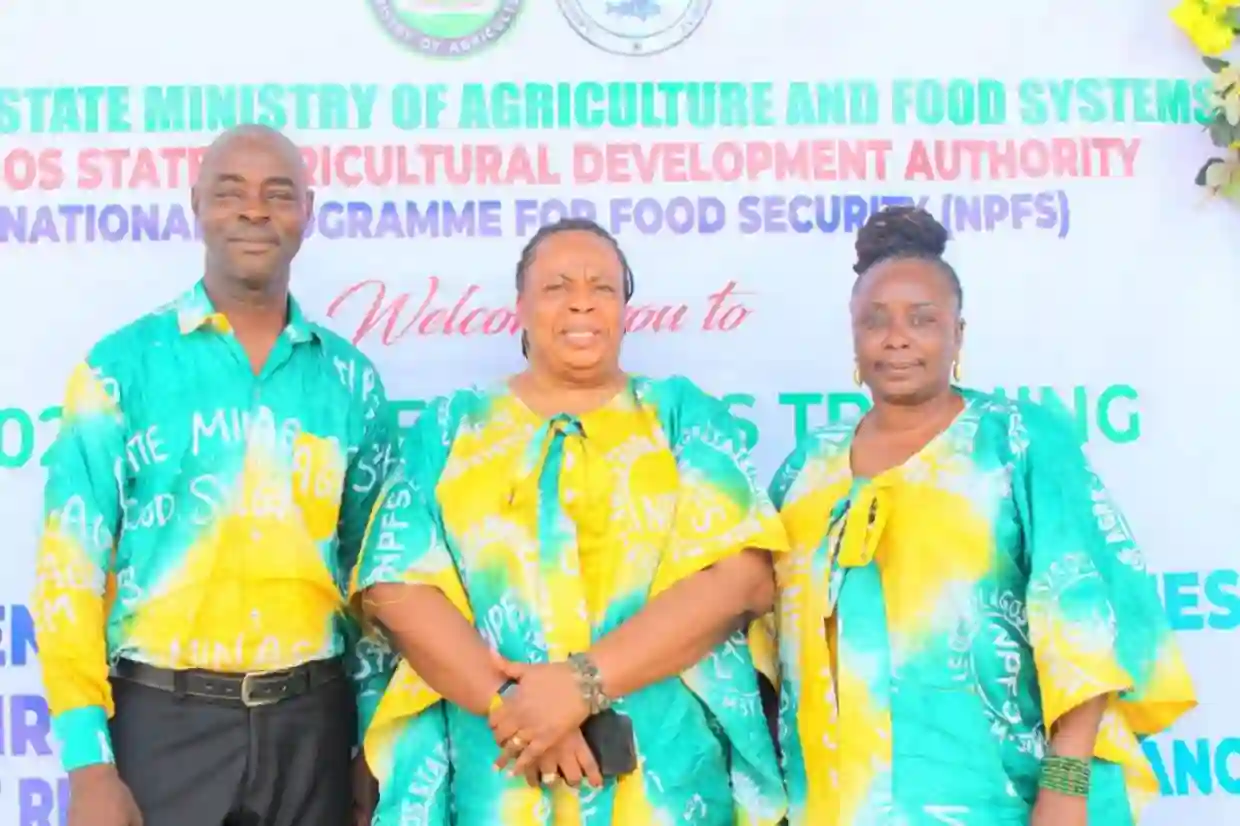The Lagos State Government has called on farmers across the state to embrace agricultural insurance as a vital risk management tool to secure the long-term sustainability of their farms. The appeal was made by the Commissioner for Agriculture and Food Systems, Ms. Abisola Olusanya, during a two-day capacity-building workshop organised by the Lagos State Agricultural Development Authority (LSADA) for selected farmers under the National Programme for Food Security (NPFS). The event took place at the Fresh Food Produce Hub, Idi-Oro, Mushin, Lagos, on 9th October 2025.
Represented by the Director of Agribusiness, Mrs. Aramide Ganzalo, the Commissioner explained that the training theme, “Strengthening Farming Communities Through Financial Management, Loan Repayment, and Agricultural Insurance: Transitioning from Simple to Mechanised Farming,” reflects the state’s ongoing commitment to empowering farmers with the right tools for productivity, resilience, and business growth.
“Agricultural insurance is designed for the benefit of farmers. Over the years, many have experienced significant losses, and the government has had to step in with compensation,” Olusanya said. “Rather than relying solely on government aid, insurance allows farmers to recover losses through insurance providers. We insure our cars, not because we expect accidents, but as a safeguard; farming should be treated the same way.”
She further revealed that in the near future, proof of agricultural insurance could become a requirement for accessing government support. “While it’s not mandatory yet, we are strongly encouraging farmers to embrace this safety net. It’s better to be insured and secure than to be vulnerable in the face of unforeseen events,” she added.
In her welcome address, LSADA’s Coordinating Director, Mrs. Aderonke Toju-Tubi, reaffirmed the agency’s commitment to strengthening the agricultural value chain and supporting farmers in all parts of Lagos State. “This training is focused on building the capacity of our farmers, enhancing financial literacy, and encouraging sustainable practices through mechanisation,” she said. “Educating farmers on financial management, timely loan repayment, and agricultural insurance will not only sustain credit schemes but also build trust between farmers and financial institutions. These are key pillars for a resilient agricultural financing ecosystem.”
Highlighting the broader vision, Toju-Tubi added: “Farming remains the backbone of our economy and the lifeline of our rural communities. This forum allows us to reflect, strategise, and empower farmers to thrive in today’s evolving agricultural landscape.”
Also speaking at the event, the NPFS Monitoring and Evaluation Officer, Mrs. Oluwatosin Ganzalo, discussed the challenges farmers face in accessing credit facilities from commercial banks. She noted that the state government now channels funds directly to farmer clusters under various enterprises. “These funds are used by the clusters and then returned to the apex body for redistribution. So far, over 5,000 farmers have benefited from the programme in recent years, and about 370 participants are currently being trained,” she said.

